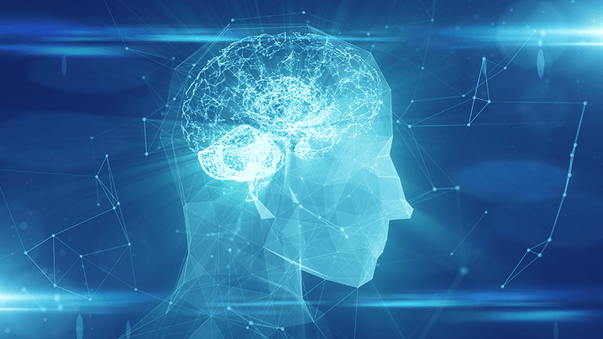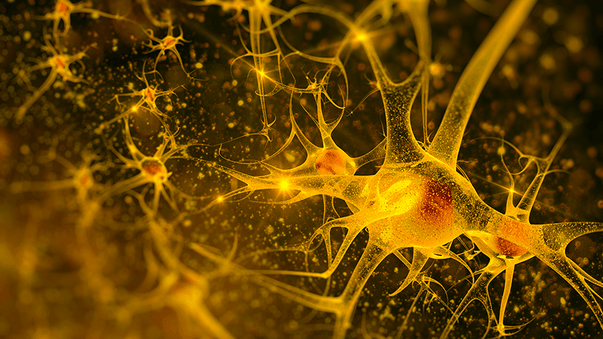Interview with Dr. Dave Dayton, Thrivous Science Advisor

Dr. Dave Dayton, with a doctoral degree from Brigham Young University, has recently joined the science advisor board at Thrivous. Dr. Dayton, who currently provides individual, couples, and group psychotherapy in Washington, DC, has taken time from his busy schedule to answer a few questions.
Can you say something about yourself, your background, and current activities?
I'm a licensed clinical psychologist working in private practice. I have a couple of offices - one in the Georgetown neighborhood of Washington DC and one across the Potomac in Arlington, Virginia. I do individual, couples, and group psychotherapy.
While I'm not a big fan of the living conditions on the east coast (humidity, population density, no proper mountains, low speed limits), I love working with people here. Most of the folks I work with are ambitious, high-functioning, intelligent, and curious. It seems like people take the endeavor of psychotherapy a little more seriously in metropolitan areas, and it's both a joy and a challenge to work with people out here.
For those who are acquainted with different modalities of therapy, I practice primarily from psychodynamic and interpersonal orientations. I've had training in other types of therapy, primarily ACT (Acceptance and Commitment Therapy), but I find that the most substantive growth occurs in my patients when I'm rooted in a psychodynamic and interpersonal perspective.
Do you have personal experience with nootropics in general, and Thrivous' products in particular?
I was skeptical of nootropics when I first heard about them. I'm cautious but curious, and I needed to hear from credible sources before I took them more seriously - fortunately there is a wealth of peer-reviewed literature about the salubrious effects of nootropics. And more and more, I hear endorsements from people, who are smarter and more successful than I, who have implemented daily use of nootropics into their lives.
So I've started using nootropics and have found the benefits to be both subtle and meaningful. While I did have to deal with the fantasy that nootropics are magic, I have come to think of them more like weightlifting supplements - they are useful as an adjunct to hard work, not a substitute.
Do you recommend nootropics to your patients? If so, what are the main use cases?
Yes, I have recommended nootropics to patients - primarily to people who are struggling with depressive symptoms, anxiety symptoms that look like ADHD (such as difficulty with focus and concentrating), and to patients with actual ADHD. My sense is that nootropics are getting more traction with people who are invested in long-term self-care and substantive personal growth, not just shortcuts or symptom relief.
Nootropics are especially appealing to people who use stimulants like Adderall but want to get off because of the deleterious side effects. While the harm stimulants do to the heart is well-documented, as a psychologist I'm more concerned about unintended and insidious psychological effects of stimulants. For example, the bursts of optimism and grandiosity that some people experience on stimulants often cover up deeper depressive symptoms that, if unaddressed, will creep into their lives in undesirable ways. Or some people who rely too much on stimulants can build self-defeating sleeping or dietary habits and end up cheating their health.
When I talk to people about nootropics, I caveat it with the fact that I am not a medical doctor. I emphasize that nootropics are not a panacea and cannot replace some psychopharmacological treatments - and that any psychopharmacological changes ought to be done in consultation with an MD.

What are the main psychological problems in today's population, and how do they differ from those of the past?
The fundamental psychological struggles of today are as old as people - the terrible burden of personal responsibility, the difficulties with forming and maintaining secure attachments to each other, figuring out how to deal with resentment in relationships, finding our backbone, working through anxiety and depression, the list goes on.
The bigger differences are contextual and cosmetic. For example, people are more likely now to do interpersonal conflict via IM or text messaging rather than face-to-face. So, in such instances, tech is not facilitating intimacy and connection so much as it’s enabling indirect and passive communication. Twitter has largely become a cesspool of projection and aggression - a venue for road rage. There are positives as well - countless connections established, maintained, or renewed via technology.
When I think of what is unique about today’s problems - that which has not been encountered by previous generations - I think of the “tyranny of choice,” the phenomenon where the freedom and autonomy to be self-determining combined with the overabundance of options actually overwhelms and immobilizes people. I work with a lot of folks who don’t know what they want. And you can’t know what you want if you don’t know what you’re feeling, so a lot of the work in psychotherapy is helping people identify how their defenses and anxieties get in the way of knowing what they’re feeling. And there is more noise now than there used to be, so the signal can be harder to connect to.
How are the younger generations in the US and the Western world different from the previous generations?
We don’t know yet to what extent environmental stimuli are affecting the expression of our DNA, but there is consensus that environmental stimuli do affect genomic expression. It is also true that there are way more stimuli now assaulting our little plastic brains from day one than even 25 years ago. So as we talk about newer generations, we have to consider how people are literally different than previous generations as their bodies are adapting to stimuli unencountered by previous generations - not that the genomic coding itself is different but that the expression of that coding is affected by the environment. This idea is supported by preliminary findings in the NASA twin study, where Scott Kelly’s genomic expression changed 7% from his twin brother’s after living in space for a year. That’s not a terribly significant shift but it is a shift.
This could suggest that, unlike other species, we might actually have a say in our own evolution - that we’re not just pinballs to be acted upon. If true, that’s a terrible existential burden that will increasingly weigh on younger generations. It’s important (but not inevitable) that this burden comes into our collective consciousness and is treated with more urgency. I don’t believe the universe cares one way or the other if humanity experiences good outcomes so it’s a little scary to think about what is on our shoulders (and really tempting and easy to stand on the sidelines and let smart people worry about it).
Another difference we’re seeing in younger generations is an increased ability to adapt-on-the-fly, as unanticipated and emergent phenomena become more ubiquitous.
What's your position on human cognitive enhancement, from today's nootropics to tomorrow's brain-computer interfacing and feedback technologies?
People who work with me often find themselves caught in a tension between compassionate self-acceptance and investing in personal growth. Part of the work for them is to sort out how these things are not mutually exclusive - that you can invest heavily in both.
I think human cognitive enhancement - and human enhancement in general - is going to make the tension between self-improvement and self-acceptance more topical. My position is that we need to prioritize the ethical, emotional, and interpersonal issues that will inevitably ensue from these developments. People are already very conflicted about taking SSRIs (selective serotonin reuptake inhibitors) to treat anxiety and depression, and this conflict is not about their efficacy. We see a similar dynamic play out around cochlear implants in the deaf and hard-of-hearing community.
So when we start enhancing the brain or the body, we are going to have a lot of uncomfortable feelings about it. And rather than just get rid of those feelings or logic them away, I think there's something there to listen to and go deeper into.
More Articles
Read more articles at Thrivous, the human enhancement company. You can browse recent articles in Thrivous Views. See other Science Advisor Board articles. Or check out an article below.
-
Deep Learning May Transform Biomedical Science
A new deep learning method for biomedical Big Data (see below), achieved by scientists at the Gladstone Institutes and Google, ...
-
Neural Dust for Nervous System Stimulation
UC Berkeley scientists have developed high-performance neural dust - implantable millimeter-sized devices operated as wirelessly powered nerve sensors - able ...


